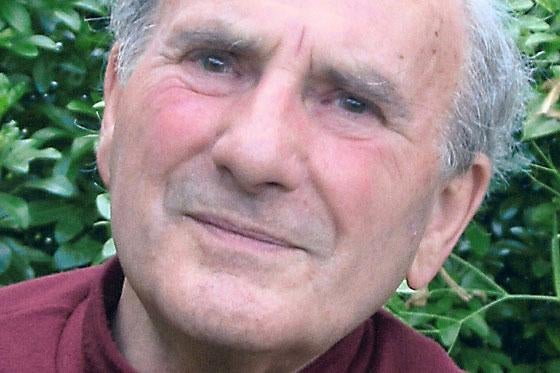
After more than 60 years in journalism – and 30 in the editor’s chair – Arnold Hadwin’s wisdom on the regional press’s plight is worth hearing. Boardroom bosses may wish to turn away now.
‘When you get a jumped-up advertising rep telling the editor what he can and can’t do, it’s the writing on the wall,’says Hadwin, who turned 80 this week. ‘The people who run newspapers know nothing about newspapers.”
Hadwin started his first journalism job in August 1945, when he became a cub reporter at The Northern Echo’s Bishop Auckland office. He started National Service two years later, and, while on duty, found time to report from Israel on the country’s first day of nationhood in 1948.
After a degree from Oxford, he worked for the Oxford Mail, becoming deputy editor, before returning to the North East – he’s from Spennymoor, County Durham – to become editor of the now-defunct Evening Despatch.
He joined the Bradford Telegraph and Argus in 1973 as editor, and became group editor of the Lincolnshire Standard Group in 1984. He retired on his 60th birthday, and, it is fair to say, knows newspapers.
‘I think the influence of the editor has been reduced impossibly since I left, because they [owners] have got as greedy as the bankers – and they’ve wasted as much money,’he says.
‘They want 18 per cent profit when they should settle for six. Eighteen per cent and 20 per cent is monstrous. At the height of the German economic miracle, they were all prepared to take eight per cent returns on capital.
‘I have always said if newspapers want to make money they should look to invest in editorial staff. It’s what’s in a newspaper that’s going to sell it, and it’s always going to be labour-intensive.
‘I was always opposed to cutting down editorial posts. It’s the easiest thing in the world to sack people – it’s more difficult to become more efficient.
‘If you have got five football matches, you want five people in five places. You can’t rely on donkeys telling you what might have happened.”
The journalism gene has passed on. Sara, Hadwin’s youngest daughter, launched the Beverley Independent, edited the North West Evening Mail in Barrow, and now teaches journalism at Cardiff University. Julie, his elder daughter, was a BBC producer.
After retiring, Hadwin went on nine foreign assignments with Voluntary Service Overseas, teaching journalists from Armenia to Uganda. He still interviews those wishing to follow his path.
‘The main thing that comes across in the old USSR is they’re used to processing government handouts, and they are very excited about what a real journalist could do,’he says. ‘For them to be part of setting the agenda was groundbreaking for them.”
So are British journalists the world’s finest? ‘I’m not sure that’s necessarily true,’he says, after some thought. ‘British journalism is a fair way ahead of some others – but there are some crap British journalists.”
Amid growing redundancies, and shrinking newsrooms, Hadwin is also concerned at the rise of blogs and online comments. ‘You get ignorant and loutish people expressing their opinions, which is ludicrous,’he says.
‘Everyone seems to think they’re capable of writing to the level of a proper journalist. But you can’t just sit down and write the first sort of crap that comes into your head. With journalism, there is a long apprenticeship.”
Not many, though, have served a longer one than Hadwin.
Email pged@pressgazette.co.uk to point out mistakes, provide story tips or send in a letter for publication on our "Letters Page" blog




